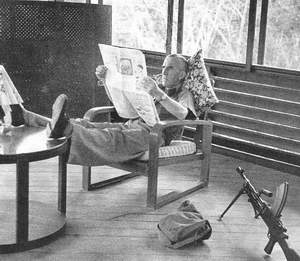|
| Classic Planter's Bar Scene in Malaya |
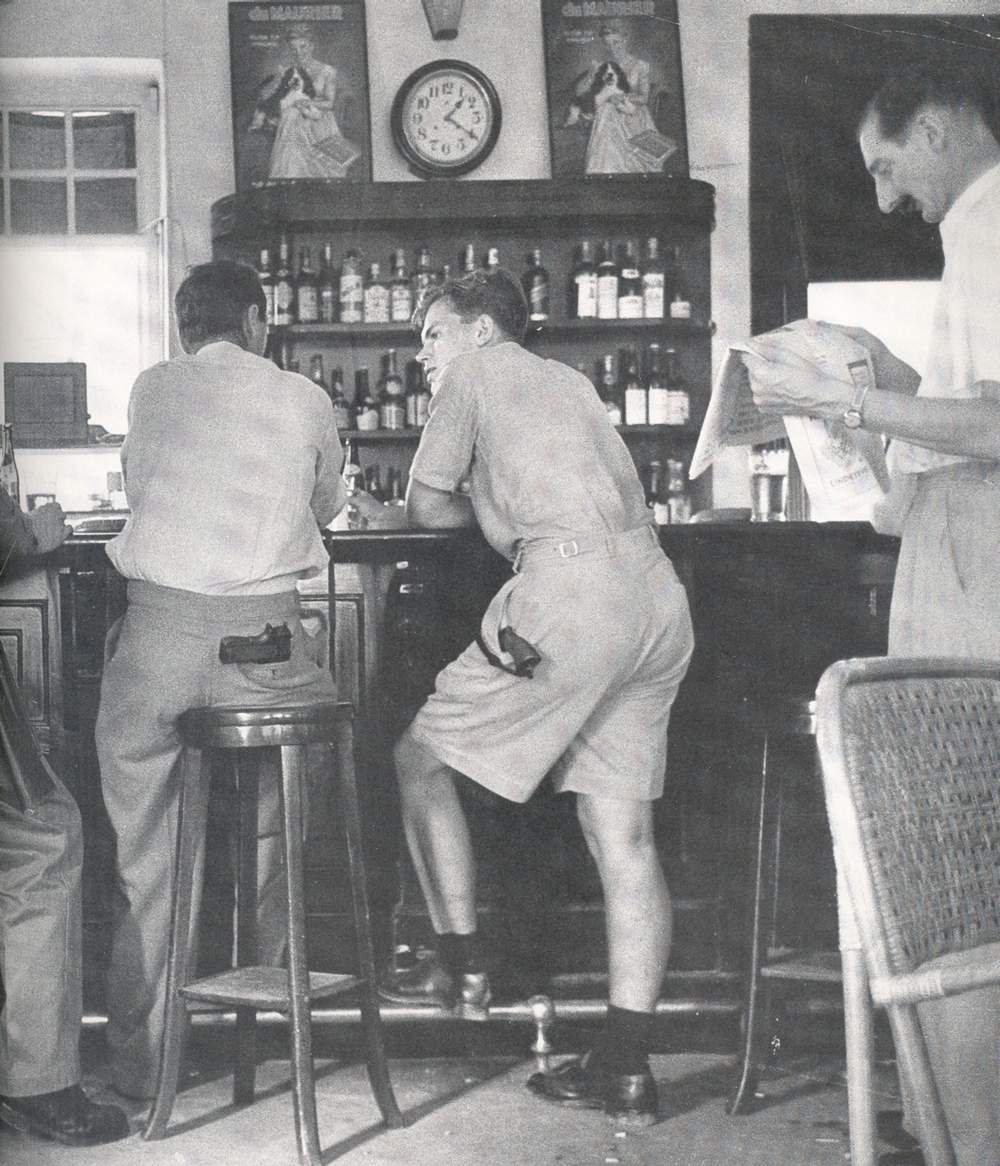
|
| Note the matter-of-fact way arms are carried by these chaps! |
Right from the outbreak of trouble, Britain had a variety of auxiliary forces which ranged from fairly straight-forward
to bloody exotic.
The first such a force were the various groupings of European farmers and plantation owners who formed mainly for mutual
protection against terrorist attacks. With manpower and organization being an issue, the British administration was quite
glad to see this happen, and provided whole-hearted assistence in the form of arms, equipment and training.
The situation demanded that planters and their workers were prepared to repel CT's at a moment's notice, and a regular
"Wild West" atmosphere developed around the situation. The daughter of one planter recalls that:
"Da' would come in for supper. He would put on the slippers, and then put old stockings on the legs of the Bren gun he
carried everywhere, lest they scratch mum's floor in the dining room".
| British and Malay Members of FMPF on Patrol |
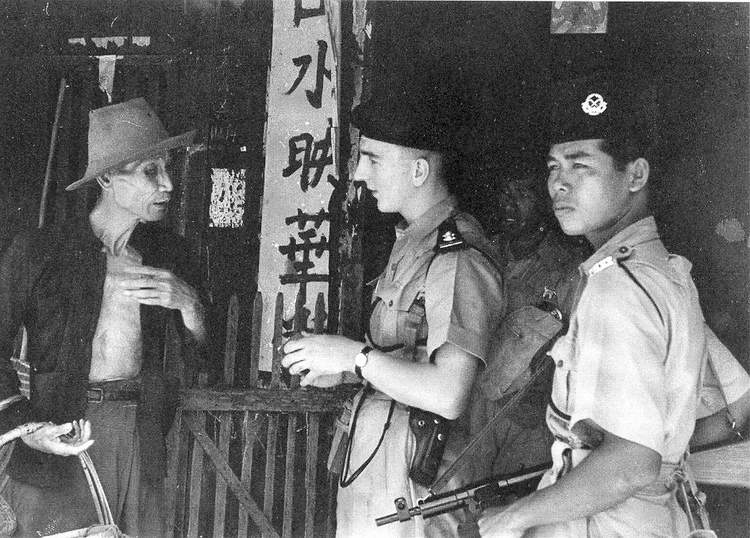
|
Another factor in the pacification of Malaya was, of course, the
British police force and its Malayan counterpart. Each of these forces also had locally appointed/deputized assistant constables,
which shifted much of the burden of responsibility for safeguarding villages against the CTs from the British to the indiginous
population.
This in itself was a major factor against the terrorists who
could not very easily claim that the British ran things, when, indeed, independently operating native police contingents existed.
These native contingents could be as formal as Malay members of the Federation of Malaya Police, and as informal as a
local volunteer group operating under British guidance.
One of the more colourful
characters during the early phase of the war was the OIC/ Detectives of Kuala Lumpur section of the British police forces
in Malaya, Superintendent Bill 'Two Guns' Stafford.
An accomplished detective
and no-nonsense man, Stafford served with distinction and style. When not fighting off bureaucratic new staffers from the
foreign office, he would be out with his detectives and local police levies searching for CTs, training local farmers or assisting
with the planning of anti-terrorist actions. Quite the jungle scrapper himself, Two Guns Stafford (fond of his Smith and Wesson
.38 caliber revolver, generally carried in a shoulder holster on top of his khaki shirt and always seen toting an M-1 Carbine
or Shotgun), would be seen about town and on raids sporting a bush hat, khaki shirts (not always the uniform variety) and
slacks. Similar to his detectives, he had also traded the detectives dress shoes for a pair of jungle boots or hockey boots.
His big claim to fame was his bringing down (and killing in the process) of the Chief Terrorist of the time, Lau Yew.
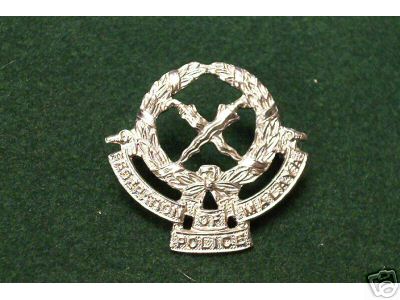
|
| Federation of Malaya Police Badge |
The Detectives section of the Federation of Malaya Police forces were a definite elite force, drawing on a brilliant
combination of police experience, military skill, amicable liaison with locals and unconventional intelligence collection.
Many of the members of this elite group would later go on to fight terrorism elsewhere, such as in Northern Ireland and as
part of the British military's anti-terrorist units.
| Iban Tracker and British NCO enjoying a Fag |
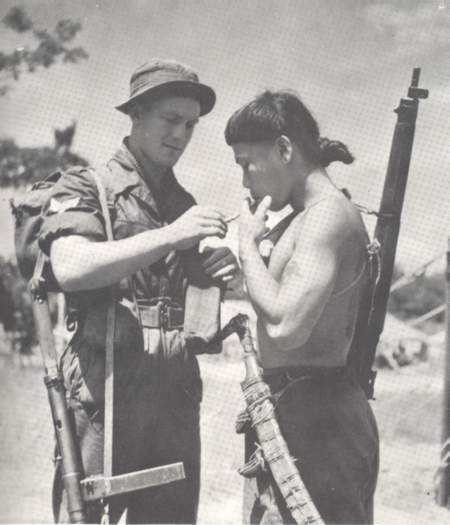
|
| Note Impressive Knife Carried by Iban Tracker |
The last element of Britain's auxiliary forces are the native
contingents, contract trackers and tribesmen.
Dating back to the war against the Japanese, British forces had realized that few
people were as adapt at warfare in the dense jungles as the native inhabitants, which were not particularly fond of the CTs
to begin with, due to the treatment received at the hands of the CTs, and the CTs need to compete with them for food and resources
in the bush.
The additional fact that the presence of CTs would invariably draw the RAF's attention
also concerned many locals, who would, free or for a nominal fee or barter goods like single-shot shotguns, tobacco and foodstuffs,
join the Brits in hunting down CTs.
|
